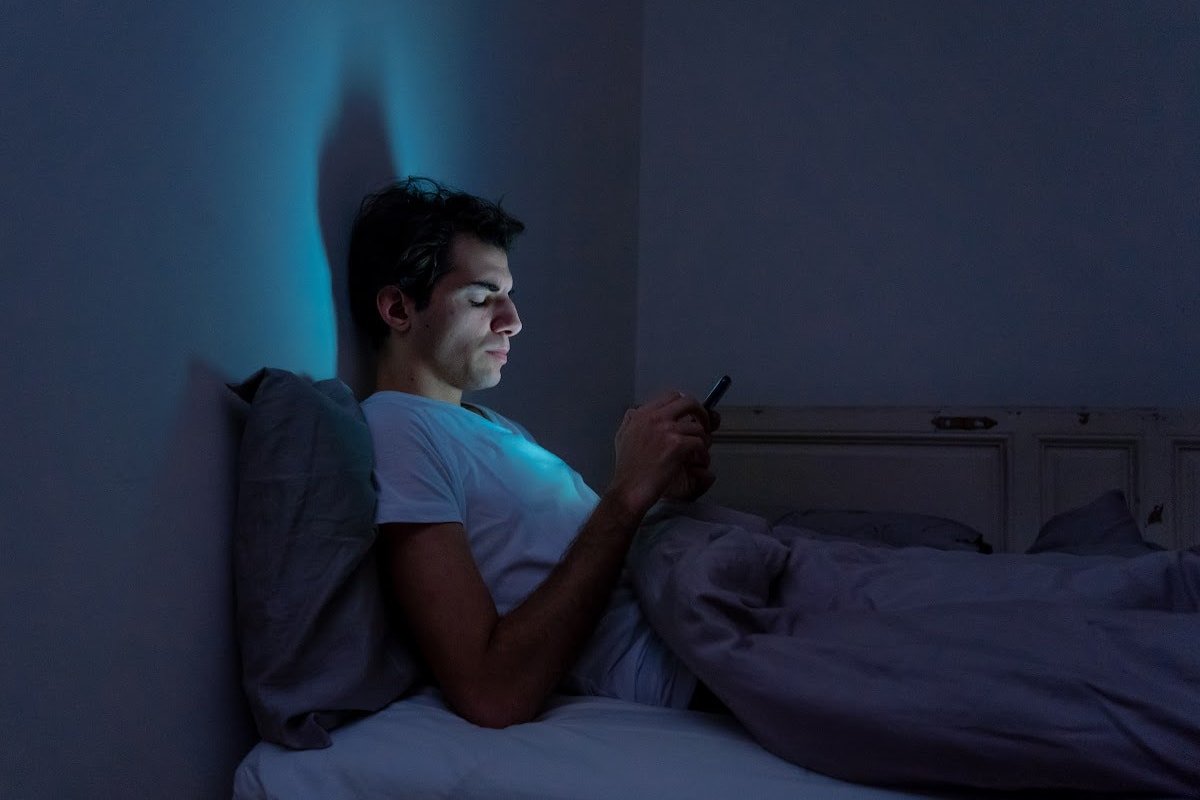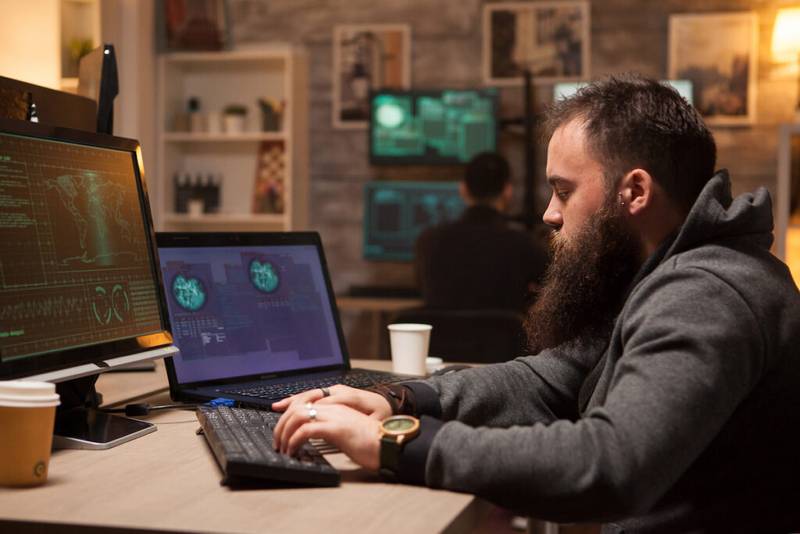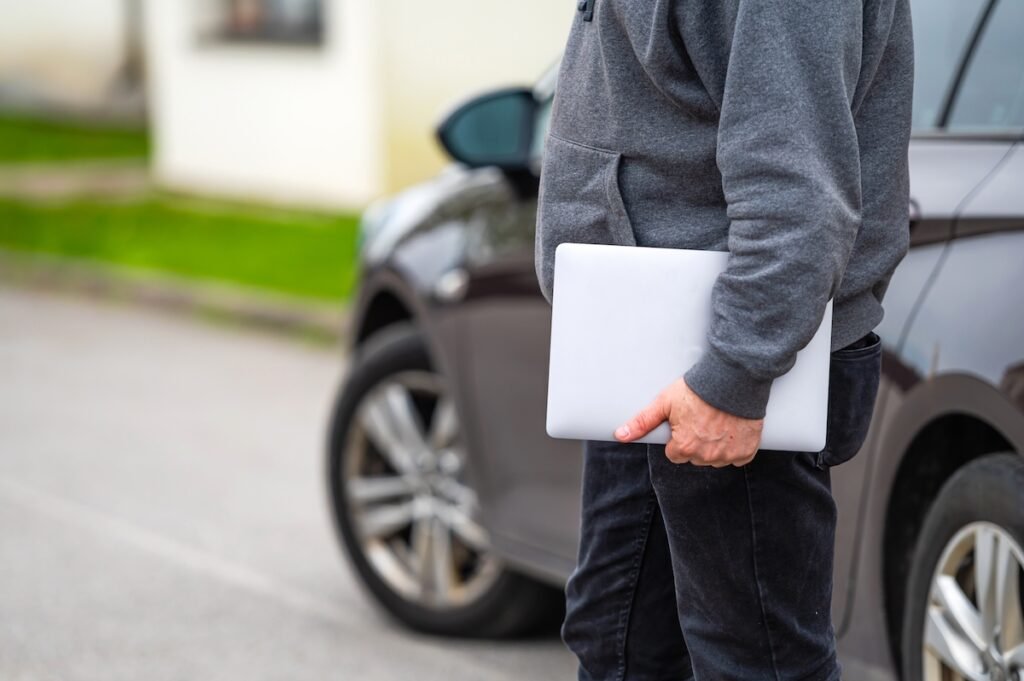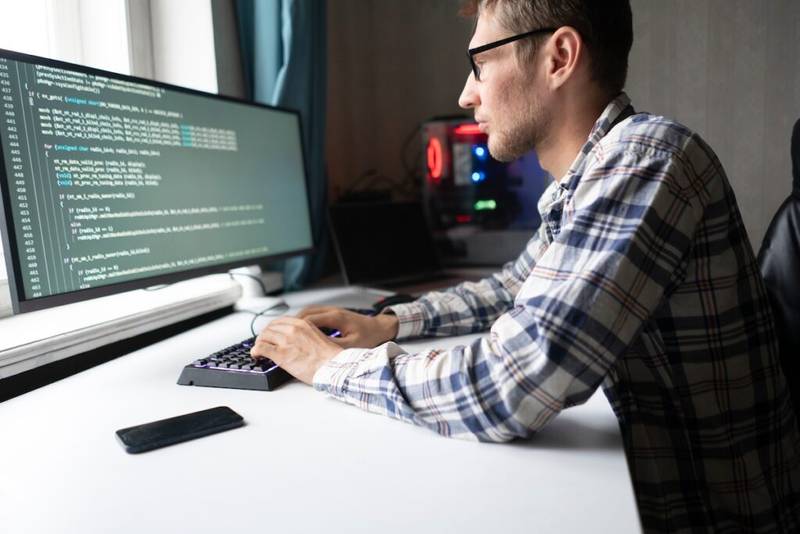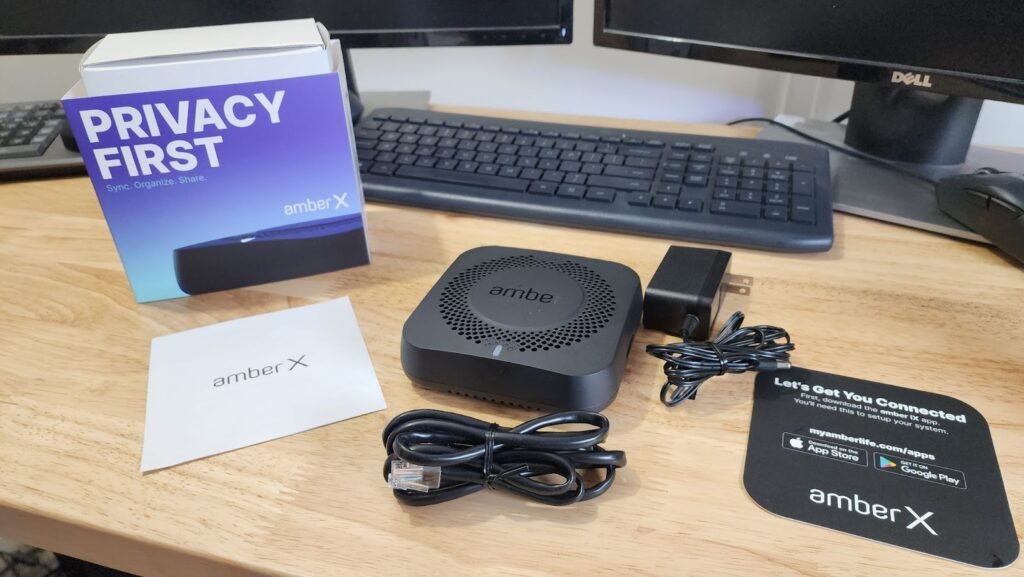Do you ever find yourself scrolling through your phone or computer in bed, hours after you should have been asleep? If so, you’re not alone. Many people struggle to break the habit of using devices right before bed. But did you know that the blue light emitted from your screens can actually inhibit your ability to sleep? Let’s be clear on this: Blue light is good for the environment, but it has the potential to harm your sleep and even cause other health issues. When you think about it, for centuries the sun was the primary source of light prior to the introduction of artificial lighting and for the most part, humans spent their nights in relative darkness. In many parts of the globe, the night sky is artificially lighted with an overabundance of light. Light pollution is a major concern with communities whereas 20 years ago…it wasn’t.
However, it’s possible that all that light is costing us something. When the sun goes down at night, the body’s circadian rhythm, the body’s internal clock, is thrown off if we get too much blue light prior to sleep. And guess what? Sleep is impacted. Furthermore, research reveals that it may have a role in causing cancer, diabetes, heart disease, and obesity. This is kind of a serious problem.
In What Ways Can Blue Light Affect Sleep?
In order to enjoy a decent night’s sleep, you need to produce the hormone melatonin. While melatonin is naturally present all day, the levels peak about midnight and continue to rise for many hours after. Melatonin, a sleep-inducing chemical, is released by the brain at different intervals and intensities depending on many different factors.
As a result, you may not feel tired at bedtime since your light bulbs and computer displays generate a lot of blue light, which inhibits the generation of melatonin in the evening and keeps you up for hours. When our normal circadian rhythm is disrupted, we not only have difficulty falling asleep and difficulty waking up more rested in the morning, but we also sleep less soundly and wake up more tired. It’s a compounding effect that has some serious implications for sleep and as a result…your overall health.
LEARN: What Do I Use For Home Network Monitoring?
The Importance Of Sleep
Most of the time, when we think about staying healthy, we just consider nutrition and exercise, ignoring the critical role that rest plays. Even if you eat the cleanest diet and work out every day, you won’t be healthy if you don’t get enough sleep. Good sleep is essential for a healthy body and mind. It helps maintain your organs functioning properly, keeps your heart healthy, and lowers your risk of diabetes and depression. A good night’s sleep allows your body to rest and recharge for the following day. Sadly, we’re getting less sleep than we used to because of all the light exposure we’re getting at night.
DO THIS: One Easy Trick To Stop Apps From Tracking You
Protect Yourself From Blue Light At Night
We are seeing more and more research on blue light from digital devices and how detrimental it can be to our health. So…how do we protect ourselves? Here are a handful of tips:
- Make use of soft red lampshades as nightlights. To avoid disrupting the circadian cycle and suppressing melatonin, red light should be used rather than blue or ultraviolet.
- Reduce screen time by two to three hours before going to bed. This is going to be really hard. You can suppress the blue light from your devices (with some devices like an iPhone and iPad you can schedule the blue light filter to turn off and on), but the remaining light from your devices can still strain your eyes and affect your sleep.
- Wear blue light blocking glasses or use an app that filters the blue/green wavelength at night if you work a night shift or use a lot of electronic gadgets during the evening. When there are those times I am using a computer late at night, I love to use this blue light screen protector for my monitor.
- Make sure you get a lot of sunlight throughout the day to improve your capacity to sleep at night, as well as your mood and alertness in the daytime.
TRENDING: Are Your Kids Hacking Your Parental Controls? You Sure?
Other Health Issues Caused By Too Much Blue Light
It’s no secret that too much blue light can cause some major health issues. Eye strain, blurry vision, headaches, cataracts, and even insomnia are just a few of the problems that can be caused by too much blue light exposure. And that’s not even getting into the long-term effects of too much blue light exposure, which can include an increased risk for macular degeneration. We still don’t know to what extent blue light can affect our health in the long run.
DISCOVER: Best Place To Buy Electronics
It’s Up To You To Protect You And Your Family
When it comes to people who find it difficult to refrain from using digital devices after dark, blue light filters and blue light glasses may help. The filters reduce the quantity of dangerous blue light emitted by displays, while the glasses prevent exposure to harmful light. Stopping screen usage at least an hour before bedtime and removing gadgets from bedrooms are still the best bets for reducing blue light and enhancing sleep quality. If you’re someone who struggles with sleep and you also use your devices right before bed, I want you to try a simple experiment. For the next few days, put your devices completely away at least one hour before bedtime. Record your sleep and reflect on the quality of sleep. Keep note of how you feel and really reflect on any changes. What I think you’ll discover is a change (hopefully a good one) in how you feel overall.

